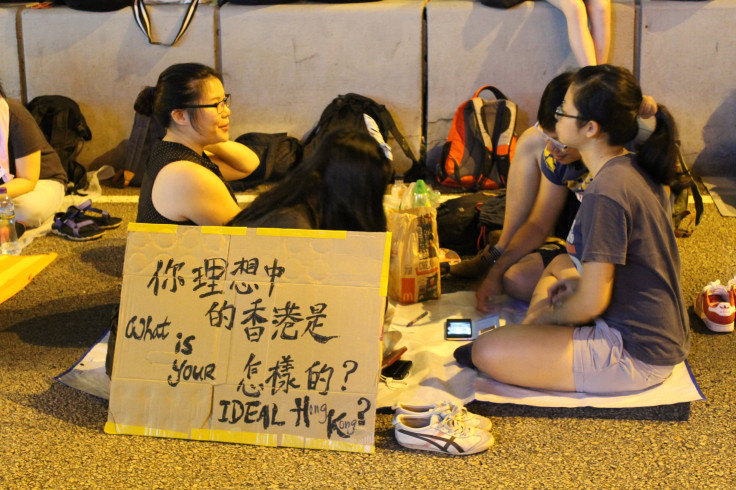Hong Kong Protests 2014: After Democracy, What Do Hong Kong Citizens Want?

HONG KONG -- The pro-democracy protest movement in Hong Kong has galvanized large swaths of the population rooting for the freedom to elect their leaders free of Beijing’s influence. However, beyond the quest for democracy is a less unified view on what should lie in Hong Kong’s future.
Many protesters who were asked what they wanted Hong Kong to become simply replied, “One better than we have now.” Others detailed various specific grievances with daily life in the special administrative region of China.
“For one, there are too many tourists who are coming in here,” said Chicco Ricamora, a 16-year-old student.
Edith Chung, 42, said wages had been squeezed tight in the years since Hong Kong was handed over to China by the U.K. in 1997. “I live in Mui Wo island. It’s a remote area,” she said. “Seven years ago, a standard village flat was about $2,500. Now it’s jumped to $10,000. Our rent, our mortgage, our fees for transportation, electricity, water, is much more expensive.”
“And our salaries haven’t increased much,” added Virginia Chu, 50.
Chung also said freedom of speech had become increasingly narrow in recent years. “In the old days, we could go on the street freely to protest, but, now, [the government] wants to stop the voices, just like in mainland China.”
Wyman Chong, 22, said in past years a college student could expect to find a steady job and begin a family after graduation. “But now after you graduate, you may not find any jobs,” she said.
Many other demonstrators invoked a familiar narrative of the rift between Hong Kong natives and Chinese mainlanders.
“There’s way too many mainlanders here,” said Michael C., a 28-year-old student. “A lot of businesses here are really happy because they’re making a lot of money. But for the majority, we cannot survive.” He added: “They are turning all the streets here into medical stores because in the mainland they can’t buy real drugs. It’s become a shopping center for the mainlanders.”
Interior designer Bear Pan, 30, echoed the sentiment: “Right now, all the policies are good for mainland China, and it’s hard for people living in Hong Kong. All the benefits go to China, like housing, and all the shops, like pharmacies, aren’t really what Hong Kong people need.”
“Hong Kong people just want a better society -- more fair,” said engineer Kenny Yu, 37.
But whatever that better society entails, supporters of the so-called Umbrella Revolution largely agree that it will not come about because of Beijing’s influence.
“I study Chinese history, so I know Communism is not the right path,” said Markus Li, 20. “I don’t want Hong Kong to go down that road.”
© Copyright IBTimes 2025. All rights reserved.






















